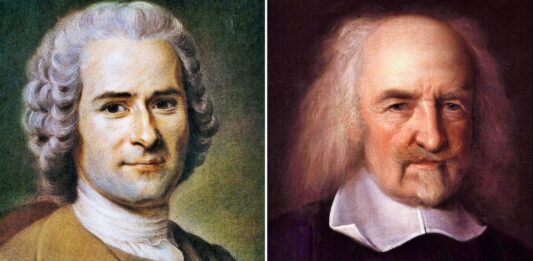Comparison of the contract of domination with Thomas Hobbes and the social contract of Jean-Jacques Rousseau

Downloads
Social contract theory is one of the theories that has been proposed to explain and describe the formation and legitimacy of the state and government. Prominent figures in this theory include Thomas Hobbes, John Locke, and Jean-Jacques Rousseau. Each of them has presented a social contract in some way. At first glance, it seems that Hobbes' conception of the social contract leads to the birth and existence of authoritarian regimes (although authoritarian regimes are based on his ideas and have justified their dictatorship). But we will eventually see that this is important because of Hobbes' emphasis on the need for security and the role of government in providing this; As mentioned above, he is opposed to the involvement of religious people in politics, and on the other hand, the ruling kings are opposed to some of the propositions of his theory. On the other side is Rousseau, who, unlike Hobbes, sees man's entry into civil society as a decline of his human status and alienation from nature. In this article, we compare the views of the two regarding the social contract. The question is how the social contract is formulated by each of these philosophers and what are the effects of each approach on society.
Copyright (c) 2021 Iran Academia Journal

This work is licensed under a Creative Commons Attribution-NonCommercial-ShareAlike 4.0 International License.








